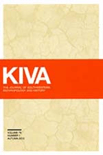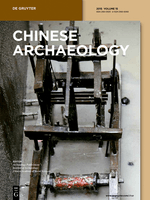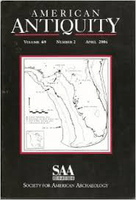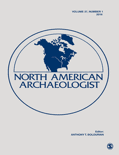
California Archaeology
Scope & Guideline
Illuminating California's Archaeological Journey
Introduction
Aims and Scopes
- Historical Archaeology:
The journal emphasizes the exploration of historical archaeological sites and artifacts, linking past human behaviors and cultural practices to contemporary issues. - Indigenous Collaboration:
A significant focus is placed on working with Indigenous communities, ensuring that ancestral knowledge and cultural heritage are respected and integrated into archaeological research. - Maritime Archaeology:
California's coastal and maritime landscapes are studied to understand the social histories and cultural practices related to seafaring and marine resource utilization. - Technological Advances:
The journal highlights the use of modern technologies in archaeology, including digital heritage, isotopic analysis, and data ethics, to enhance research methodologies. - Cultural Resource Management:
The journal addresses the implications of archaeological findings for cultural resource management, emphasizing the importance of preserving archaeological sites in the face of development and change. - Environmental Archaeology:
Investigations into the relationships between past human populations and their environments, including subsistence strategies and ecological changes, form a core area of research.
Trending and Emerging
- Collaboration with Indigenous Communities:
An increasing number of studies emphasize the importance of collaboration with Indigenous peoples, focusing on their roles in research, cultural heritage management, and the interpretation of archaeological findings. - Conflict Archaeology:
Emerging themes related to conflict archaeology explore historical memory and the experiences of marginalized groups, particularly in the context of California's diverse and often tumultuous history. - Digital Heritage and Ethical Practices:
There is a growing focus on the ethical implications of digital heritage practices, including data management, accessibility, and the responsibilities of archaeologists to the communities they study. - Environmental and Climate Studies:
Research addressing the impact of environmental changes on past populations, including climate adaptation and resilience strategies, is gaining traction, reflecting broader concerns about climate change today. - Maritime Cultural Landscapes:
The exploration of California's maritime cultural landscapes is emerging as a critical area of study, linking archaeological research with contemporary issues of marine resource management and environmental conservation.
Declining or Waning
- Traditional Ethnographic Approaches:
There is a noticeable decrease in traditional ethnographic studies that do not incorporate contemporary Indigenous perspectives, reflecting a shift towards more collaborative and inclusive methodologies. - Purely Historical Focus:
While historical archaeology remains important, the journal has moved away from studies that focus solely on historical narratives without connecting them to broader archaeological contexts or Indigenous histories. - Generalized Archaeological Surveys:
The trend towards more localized and specific case studies has led to a decline in broader archaeological surveys that lack detailed context or connection to contemporary issues. - Non-Interdisciplinary Studies:
Papers that do not engage with interdisciplinary approaches are becoming less common, as the journal prioritizes research that integrates multiple scientific and cultural perspectives.
Similar Journals

Kiva-Journal of Southwestern Anthropology and History
Fostering Scholarly Dialogue on Southwestern StudiesKiva - Journal of Southwestern Anthropology and History is a distinguished academic journal published by Routledge Journals, Taylor & Francis Ltd, that serves as a vital resource for scholars in the fields of anthropology, archaeology, and history. With an ISSN of 0023-1940 and an E-ISSN of 2051-6177, this journal has established itself as a significant avenue for scholarly communication since its inception in 1964. It consistently ranks in the top quartiles, including Q1 in Archaeology and Q2 in Anthropology, reflecting its high impact and rigorous peer-review process. Covering a wide array of topics pertinent to the Southwestern United States, Kiva invites original research articles, reviews, and methodological papers that advance understanding of the region's rich cultural heritage and historical narratives. While currently not open access, its commitment to disseminating quality research makes it an essential reading for researchers, professionals, and students aiming to explore the multifaceted dimensions of southwestern studies.

Virtual Archaeology Review
Empowering Knowledge Sharing in Virtual Archaeology.Virtual Archaeology Review, published by UNIV POLITECNICA VALENCIA, EDITORIAL UPV, is a distinguished open-access journal dedicated to the dynamic fields of archaeology and conservation. Based in Spain, this journal has made a significant impact in the academic community, reflected in its outstanding Q1 ranking in Archeology and Conservation for 2023, alongside impressive standings in related disciplines such as Computer Science Applications. With an active commitment to promoting the accessibility of knowledge since 2010, it provides a platform for researchers, professionals, and students to share innovative findings and methodologies in virtual archaeology, fostering collaboration across disciplines. The journal's impact factor and its strategic focus on advancing the practice of virtual methodologies in archaeology underscore its vital role in bridging technology and heritage studies. By embracing a multidisciplinary approach, Virtual Archaeology Review not only enhances academic discourse but also drives the development of effective conservation strategies, making it an essential resource for those dedicated to the preservation and appreciation of our cultural heritage.

International Journal of Historical Archaeology
Fostering Interdisciplinary Dialogue: Shaping the Future of Archaeological ResearchInternational Journal of Historical Archaeology, published by SPRINGER, stands at the forefront of archaeological scholarship, focusing on the intricate relationship between historical events and archaeological findings. With an impressive impact factor underscored by its ranking in the Q1 quartiles across various categories, including Archeology and History, this journal serves as a premier platform for researchers, professionals, and students alike to disseminate groundbreaking findings and theoretical advancements in the field. Although it is not an Open Access publication, the journal provides valuable insights through its rigorous peer-review process, enhancing the quality of contributions. Covering a breadth of topics from 1997 to 2024, it is vital for advancing knowledge in historical archaeology and offers an essential resource for those invested in understanding our shared past through the lens of material culture. The journal's commitment to fostering interdisciplinary discussions enriches the scholarly community and supports the evolution of methodologies and perspectives within the domain.

Chinese Archaeology
Deciphering the Mysteries of China's Archaeological LegacyChinese Archaeology, published by WALTER DE GRUYTER GMBH, is a leading journal dedicated to the exploration and study of China's rich archaeological heritage. With an ISSN of 2160-5025 and an E-ISSN of 2160-5068, this journal serves as an essential platform for scholars, researchers, and enthusiasts in the field of archaeology, offering a blend of original research articles, reviews, and critical essays that address both contemporary issues and historical narratives. While it currently operates under a conventional access model, making cutting-edge research available to a select audience, it plays a crucial role in advancing knowledge about China's archaeological sites, artifacts, and past civilizations. Given the increasing interest in Eastern archaeology and its significance in a global context, Chinese Archaeology is positioned as a pivotal resource for understanding and interpreting the complexities of China’s historical evolution. Researchers and academics are encouraged to contribute and engage with this vital field of study to foster greater insights and innovations.

AMERICAN ANTIQUITY
Shaping the Future of Archaeological Discourse.AMERICAN ANTIQUITY, published by Cambridge University Press, stands as a premier journal in the fields of archaeology, arts and humanities, history, and museology. With an enduring legacy since its inception in 1935, this journal has consistently ranked in the Q1 category across several disciplines, reflecting its significant impact and authority in shaping contemporary scholarly discourse. It boasts impressive Scopus rankings, placing it in the 99th percentile for archaeology and history, which underscores its critical role in advancing research and understanding of American archaeology and related fields. Although it does not currently offer open-access options, the journal remains a vital resource for researchers, professionals, and students seeking high-quality, peer-reviewed content. As it converges toward 2024, AMERICAN ANTIQUITY continues to foster innovative scholarship and preserve knowledge, making it an essential reading for anyone invested in the exploration of cultural heritage and historical narratives.

Cuadernos de Prehistoria y Arqueologia-Universidad Autonoma de Madrid
Advancing Knowledge in Archaeology and PrehistoryCuadernos de Prehistoria y Arqueologia-Universidad Autonoma de Madrid is a distinguished academic journal dedicated to the fields of archaeology and prehistory, published by the Universidad Autonoma de Madrid, Departamento de Prehistoria y Arqueología. With an ISSN of 0211-1608, this journal plays a crucial role in disseminating significant research findings and theoretical advancements within these domains. Recognized for its scholarly excellence, it holds impressive quartile rankings in 2023, including Q2 in Archaeology and Q1 in History, reflecting its high impact within the academic community. While currently not an open-access publication, Cuadernos de Prehistoria y Arqueologia provides valuable insights to researchers, professionals, and students engaged in the exploration of human history and cultural heritage from 2018 to 2024 and beyond. With a commitment to fostering interdisciplinary dialogue, this journal serves as an essential platform for innovative studies and comprehensive reviews, contributing to the advancement of knowledge in archaeology and prehistory.

Prilozi Instituta za Arheologiju u Zagrebu
Fostering scholarly dialogue on the cultural heritage of the region.Prilozi Instituta za Arheologiju u Zagrebu is a prominent academic journal published by INST ARHEOLOGIJU, dedicated to advancing the field of archaeology and related historical studies. Operating in Croatia, this journal serves as a vital platform for scholars, researchers, and students to disseminate innovative research and insights within the realm of archaeology, with a focus on the rich cultural heritage of the region. The journal spans contributions from 2002 to 2011 and has ongoing publication since 2013, reflecting its commitment to contemporary archaeological discourse. With a growing reputation, it has achieved a Q3 ranking in the fields of Archaeology and Arts and Humanities, and a Q2 ranking in History, signifying its impact and relevance in the academic community. Although Open Access options are not available, the journal remains an essential resource for those pursuing in-depth knowledge and research in archaeology. Researchers can harness the journal's extensive scope to explore critical historical narratives and archaeological findings, solidifying its importance in both local and global contexts.

Conimbriga-Revista de Arqueologia
Bridging Cultures Through Innovative Archaeological ResearchConimbriga-Revista de Arqueologia is a distinguished open-access journal dedicated to the field of archaeology, published by COIMBRA UNIVERSITY PRESS. Since its inception, the journal has fostered a vibrant intellectual community focused on the exploration and dissemination of archaeological research, particularly emphasizing studies relevant to the rich historical and cultural heritage of Portugal and beyond. With its open access model established in 2014, it has become a vital resource for researchers, professionals, and students to share their findings without access barriers, encouraging collaboration and knowledge exchange. Despite the absence of specific metrics such as the HIndex and Scopus rankings, the journal is recognized for its commitment to high-quality scholarship and its role in advancing archaeological discourse. Positioned within the scholarly landscape, Conimbriga-Revista de Arqueologia serves as a crucial platform for the publication of innovative research, reviews, and critical essays, making it an essential journal for those invested in the archaeological sciences.

Archaeologies-Journal of the World Archaeological Congress
Innovative Research at the Intersection of TimeArchaeologies: Journal of the World Archaeological Congress is a premier academic journal published by Springer, focusing on the dynamic and interdisciplinary field of archaeology. With an ISSN of 1555-8622 and an E-ISSN of 1935-3987, this journal serves as a significant platform for the dissemination of innovative research, theory, and practice within the archaeological community. Hailed for its rigorous peer-review process, Archaeologies consistently ranks in the 74th percentile among its peers, currently holding a Q2 category placement in the field of archaeology as per the 2023 Scopus rankings. The journal publishes original articles, critical essays, and case studies that emphasize the cultural, historical, and methodological aspects of archaeological research from a global perspective. As a key resource for researchers, professionals, and students alike, Archaeologies facilitates critical dialogue and enhances understanding of humanity's past through archaeology. Although the journal is not open access, it provides various subscription options to ensure its valuable content remains accessible to its diverse audience.

NORTH AMERICAN ARCHAEOLOGIST
Uncovering the Past, Shaping the FutureNORTH AMERICAN ARCHAEOLOGIST, published by SAGE PUBLICATIONS INC, is a prestigious journal that serves as an essential resource for professionals and scholars in the field of archaeology. With its ISSN 0197-6931 and E-ISSN 1541-3543, the journal aims to disseminate high-quality research that contributes to the understanding of the historical and cultural significance of North America from prehistory to the present. As of 2023, it holds an impressive Q2 category in Archaeology and ranks within the Q1 tier for Archaeology (arts and humanities), positioning it among the top journals in its field. Its Scopus rankings further emphasize its significance, reflecting a commendable percentile standing that underscores its influence in both arts and humanities and social sciences. The journal is committed to offering a platform for innovative research and scholarly discussion, making it invaluable for researchers, professionals, and students dedicated to advancing archaeological knowledge.